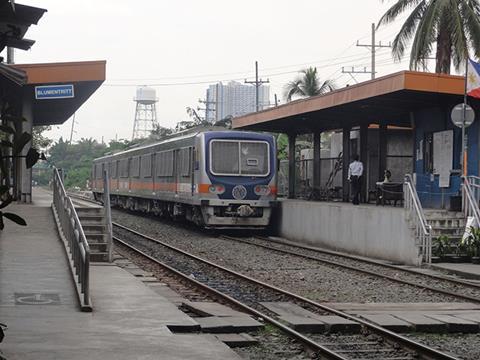
INTERNATIONAL: The Philippines and UK governments have signed a memorandum of understanding covering co-operation in rail. Under the MoU, which covers training and skills development, the UK’s National Skills Academy for Rail will work directly with the Philippine Railway Institute.
PRI was established in December 2019 with financial backing from JICA to help grow the local skills base initially to support major projects in the capital including the MRT9 Metro Manila Subway and the North-South Commuter Railway.
Mark Holmes, Head of Membership & Development at NSAR, told Railway Gazette International that this was the organisation’s first initiative in the Philippines, where the Department for Transportation has plans to expand the main line network from less than 100 km of operational lines today to 1 200 km.
He said that PRI had chosen to work with NSAR partly because of the UK’s long history of railway development. NSAR initially ran a series of remote workshops for PRI, focusing on building up a competency model and skills base requirements for major rail projects. These workshops included input from specialists at NSAR and ORR, the Department for Transport and Network Rail, to give the PRI an overview of safety systems, skills and competency requirements and quality assurance of training provision.
Holmes emphasised that the UK has one of the safest railway systems in the world, so NSAR has a lot of knowledge to share about the link between competence and safety. NSAR is also heavily focused on the quality of training — ensuring that the Philippines has a bedrock of skilled staff who can then share their learning with others in the industry to ensure the railway continues to operate safely and efficiently as it is expanded.
NSAR will initially work remotely, helping the PRI to build a curriculum for apprenticeships and other training programmes and developing quality assurance and accreditation standards for those courses.
Holmes said one of NSAR’s strengths is its access to the extensive know-how across the UK rail industry, speeding up access to specialist institutional knowledge that may not be readily available locally.
‘All the relevant bodies are members of NSAR and NSAR knows exactly what their strengths are, and therefore to whom to refer people, saving partners from having to do extensive, hit-and-miss research’, Holmes added. ‘We are therefore in a position to showcase the best of UK rail.’

















